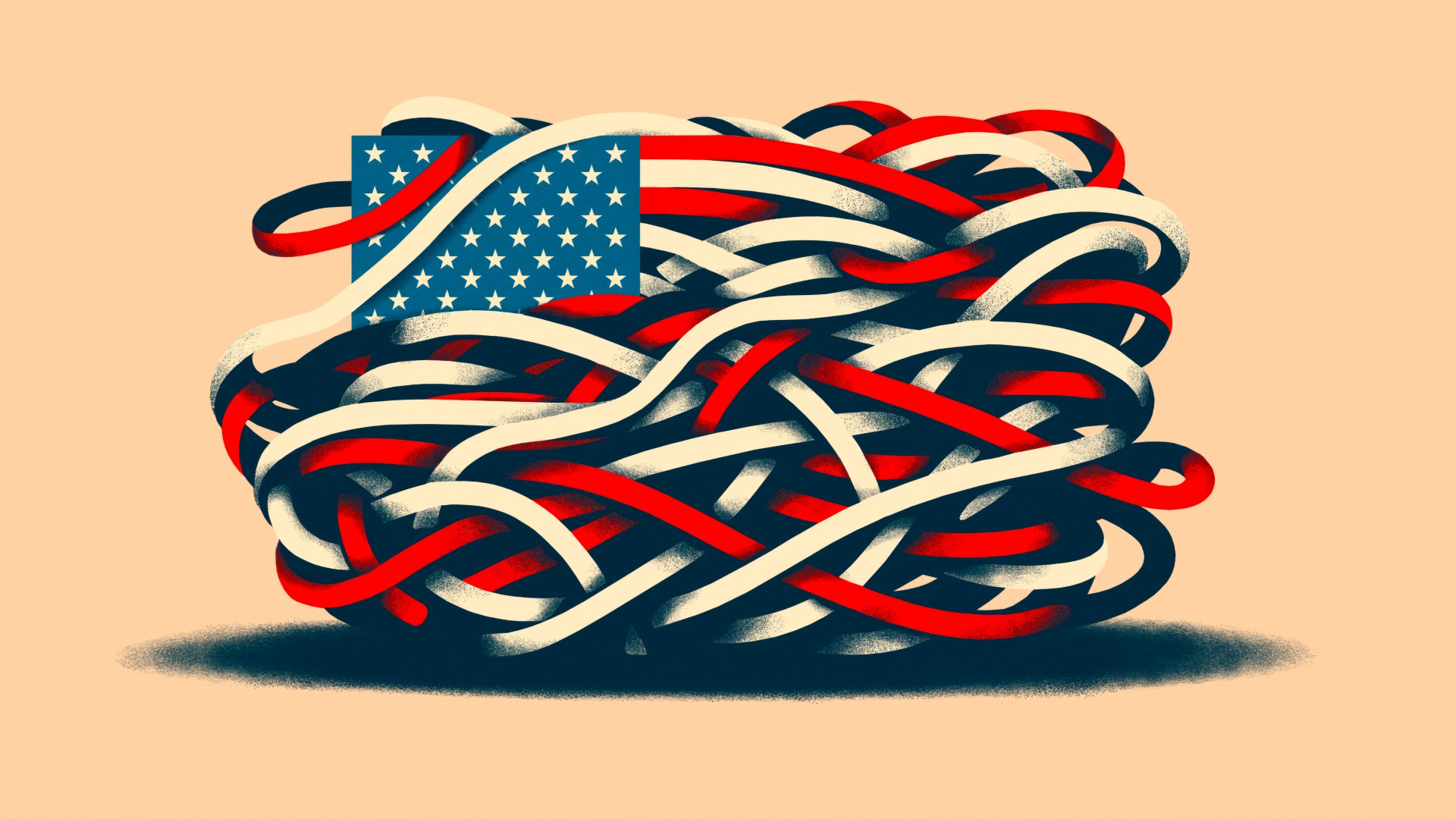4 tips for coping with election anxiety and stress
Election news is hard to circumvent. But navigating the politically charged season does not have to be stressful.


A free daily email with the biggest news stories of the day – and the best features from TheWeek.com
You are now subscribed
Your newsletter sign-up was successful
The fever surrounding election season can be a trigger for increased anxiety and stress, especially when it feels nigh-impossible to avoid election-related information. Here are tips from mental health professionals for alleviating or evading election-related stress.
Take breaks from social media
Social media plays a significant role in how our "current election news ecology functions," Dr. Harris Stratyner, a psychologist and clinical associate professor at Mount Sinai School of Medicine, said to CNET. Social media is "amplifying the perceived stakes" while flooding feeds with "overheated political discourse, misinformation and news," he said. That can be "anxiety-inducing and overwhelming."
No matter where you fall on the political spectrum, the constant barrage of inflammatory content and confrontational comment sections can lead to heightened stress levels. Some users may feel "socially isolated" when their "views do not match those of their social circles," said Stratyner. They might end up in echo chambers that "reinforce their political views, deepening political polarization and increasing anxiety over how high the stakes of the election might be." To avoid this, you could silence your notifications or find ways to limit the time you spend doom-scrolling on the apps. It might also be a good time for a complete digital detox. If you can not disconnect, consider features that allow you to mute specific topics, phrases or accounts.
The Week
Escape your echo chamber. Get the facts behind the news, plus analysis from multiple perspectives.

Sign up for The Week's Free Newsletters
From our morning news briefing to a weekly Good News Newsletter, get the best of The Week delivered directly to your inbox.
From our morning news briefing to a weekly Good News Newsletter, get the best of The Week delivered directly to your inbox.
Practice problem analysis
Worrying about potentially confrontational conversations about politics can also be anxiety-inducing. While researching anticipatory election stress, psychology professor Shevaun Neupert found that problem analysis was a particularly effective coping mechanism. Problem analysis involves thinking critically about "what they think will happen and why they think it might happen," she said to Time. You might also reflect on why you anticipate an argument and whether you could "try to understand their perspective ahead of time." As you pause to think about these questions, she suggests brainstorming your response to avoid an argument and instead have a productive conversation.
Switch your news consumption habits
Like social media and other habits, television news can "become addicting," especially the "fast-paced news cycle of an election season," therapist Gregory Scott Brown said at The Washington Post. The exhilaration can produce a dopamine rush, leaving you "waiting, searching or scrolling for the next breaking story." Chasing that rush can negatively impact your mental health. Cable news often features "pundits talking over each other to make their candidate's best argument," leading to a stressful viewing experience. Instead of watching TV, "try reading it in your favorite newspaper or online magazine, which may be less stressful," Brown said.
De-stress and practice self-care
Turn your attention to things that bring you joy. If you are not taking the time to do relaxing activities, "anxiety can creep up quickly," Colleen Marshall, the chief clinical officer at Two Chairs, said to CNET. Finding that balance means making time to de-stress, whether that involves exercising, meditating or tackling a hobby. Prioritizing relaxation can help you lessen the weight of the more anxiety-ridden parts of your day, including worrying about the election.
It can also be helpful to reflect on what has helped you de-stress in the past, psychotherapist Kristin Papa said to Time. Making those connections can help you navigate current election season stress. It is about "finding a way to get to the point where you can live your life and do what you need to do," rather than becoming stuck in the loop of election-related hysteria, she said.
A free daily email with the biggest news stories of the day – and the best features from TheWeek.com
Theara Coleman has worked as a staff writer at The Week since September 2022. She frequently writes about technology, education, literature and general news. She was previously a contributing writer and assistant editor at Honeysuckle Magazine, where she covered racial politics and cannabis industry news.
-
 ‘Restaurateurs have become millionaires’
‘Restaurateurs have become millionaires’Instant Opinion Opinion, comment and editorials of the day
-
 Earth is rapidly approaching a ‘hothouse’ trajectory of warming
Earth is rapidly approaching a ‘hothouse’ trajectory of warmingThe explainer It may become impossible to fix
-
 Health insurance: Premiums soar as ACA subsidies end
Health insurance: Premiums soar as ACA subsidies endFeature 1.4 million people have dropped coverage
-
 ‘Longevity fixation syndrome’: the allure of eternal youth
‘Longevity fixation syndrome’: the allure of eternal youthIn The Spotlight Obsession with beating biological clock identified as damaging new addiction
-
 Stopping GLP-1s raises complicated questions for pregnancy
Stopping GLP-1s raises complicated questions for pregnancyThe Explainer Stopping the medication could be risky during pregnancy, but there is more to the story to be uncovered
-
 RFK Jr. sets his sights on linking antidepressants to mass violence
RFK Jr. sets his sights on linking antidepressants to mass violenceThe Explainer The health secretary’s crusade to Make America Healthy Again has vital mental health medications on the agenda
-
 Tips for surviving loneliness during the holiday season — with or without people
Tips for surviving loneliness during the holiday season — with or without peoplethe week recommends Solitude is different from loneliness
-
 More women are using more testosterone despite limited research
More women are using more testosterone despite limited researchThe explainer There is no FDA-approved testosterone product for women
-
 Climate change is getting under our skin
Climate change is getting under our skinUnder the radar Skin conditions are worsening because of warming temperatures
-
 Why social media is obsessed with cortisol
Why social media is obsessed with cortisolIn The Spotlight Wellness trend is the latest response to an increasingly maligned hormone
-
 The app tackling porn addiction
The app tackling porn addictionUnder the Radar Blending behavioural science with cutting-edge technology, Quittr is part of a growing abstinence movement among men focused on self-improvement
